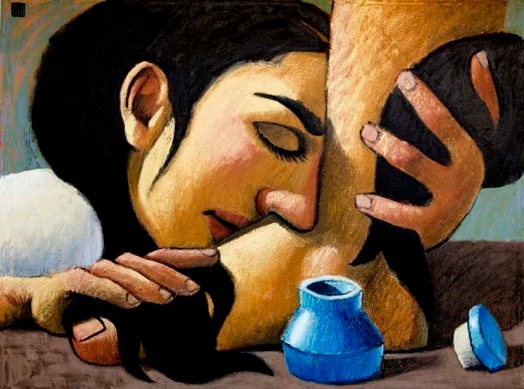
I know, I know. Last week I was confessing that there were too many Marys in the Bible to keep them all straight and yet, here I go introducing another. Stick with me, though.
Mary of Bethany is someone I’ve known all of my life, but I felt like I had more in common with her sister than I did with her. Maybe its because I have this thing about feet and she always seemed to be about the feet. I don’t know. With half-hearted enthusiasm, I reached out to Mary of Bethany earlier this year and was surprised to find that we not only connected in a couple of ways, but she has since become a woman I deeply admire and want to be like.
You see, I’ve always had this prejudice where Mary was concerned, this judgment of her as the lazy sister, leaving her sister to pick up the slack while she did her own thing. The more time I spent with Mary, however, and the more attentive to her testimony I became, the more I saw her in a new light – as an example of a female disciple. Jesus called His male disciples to leave their work and follow Him. I saw clearly for the first time that this was what Mary was doing, as well. I became ashamed at how I had always viewed her, leaving all the work to her poor, burdened, responsible sister, Martha, when what she was actually doing was following Him, just as His male disciples were. And she was praised for her choice.
If you’ve held off on getting to know Mary of Bethany, let this be the week you decide to invest in that relationship. She’s not your average Mary. And she is about so much more than just feet.
Click here to meet my new friend, Mary of Bethany.

